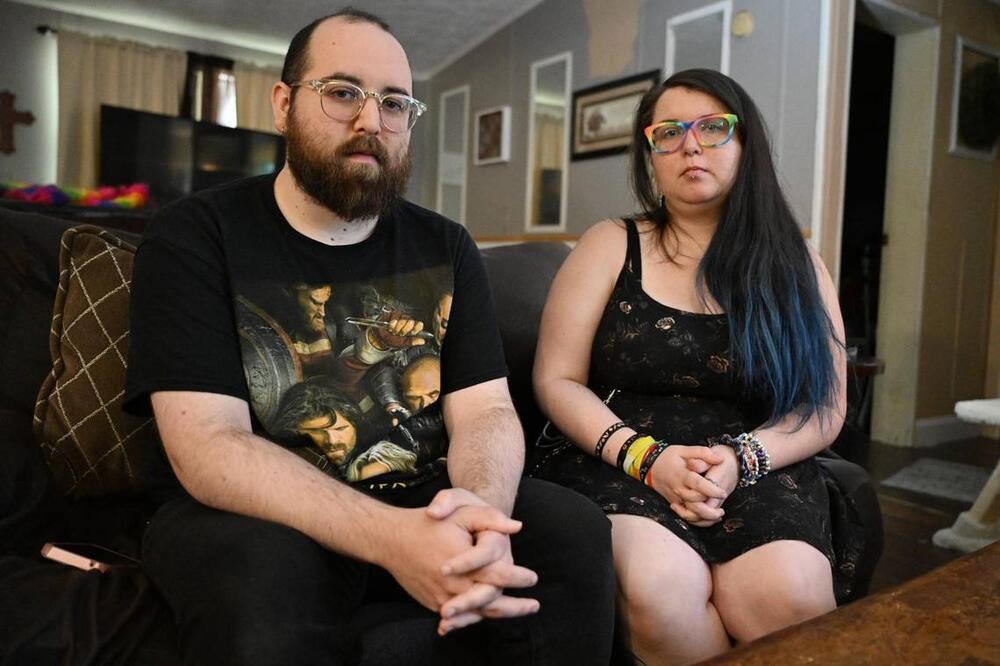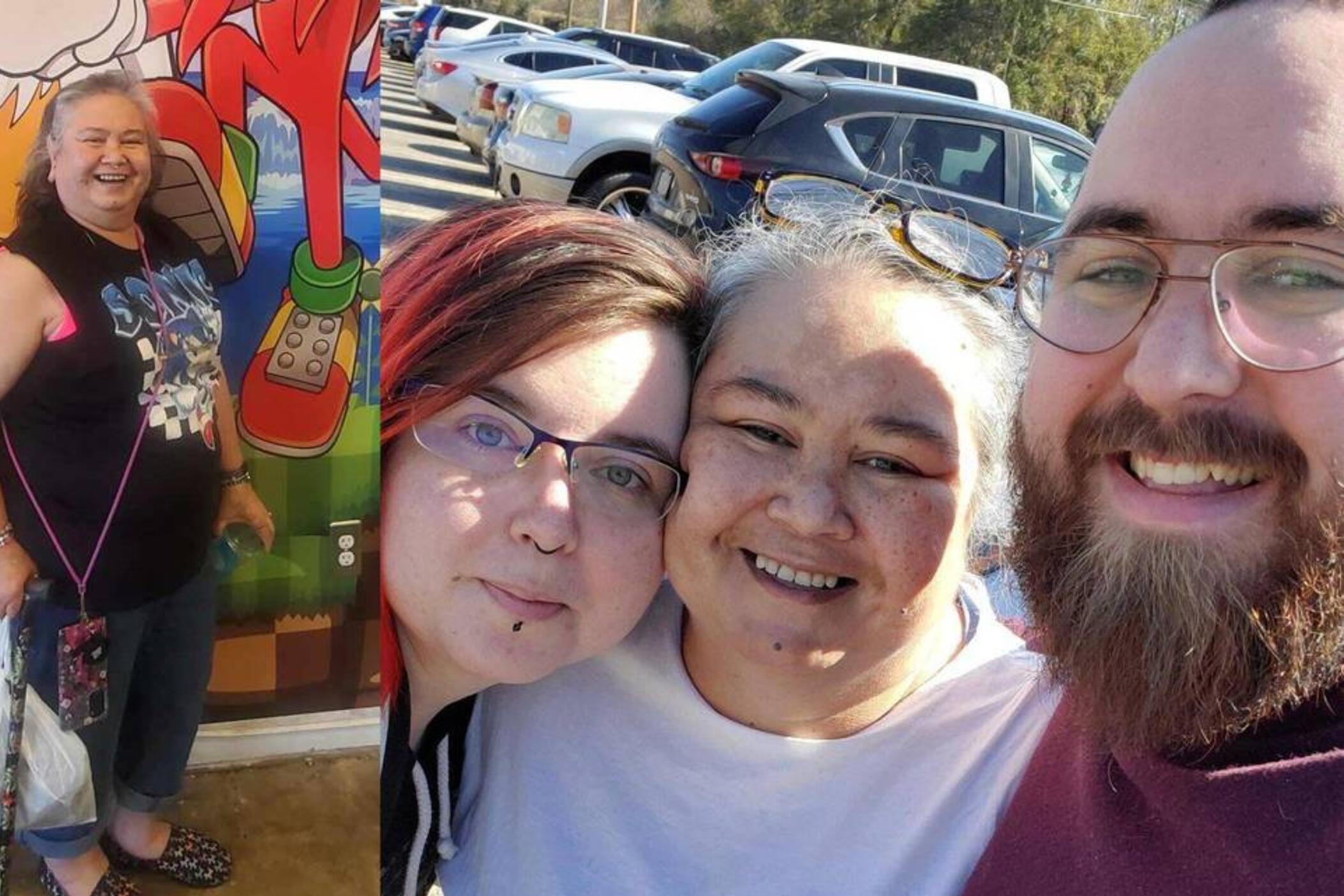
Caption
John Mitchell, 32, and Chris Mitchell, 28, from Jones County, Ga., pose for a portrait on Monday, June 16, 2025, in Macon, Ga. Their mother, Alma Bowman, was detained by ICE for a second time in March 2025.
Credit: Katie Tucker/The Telegraph



